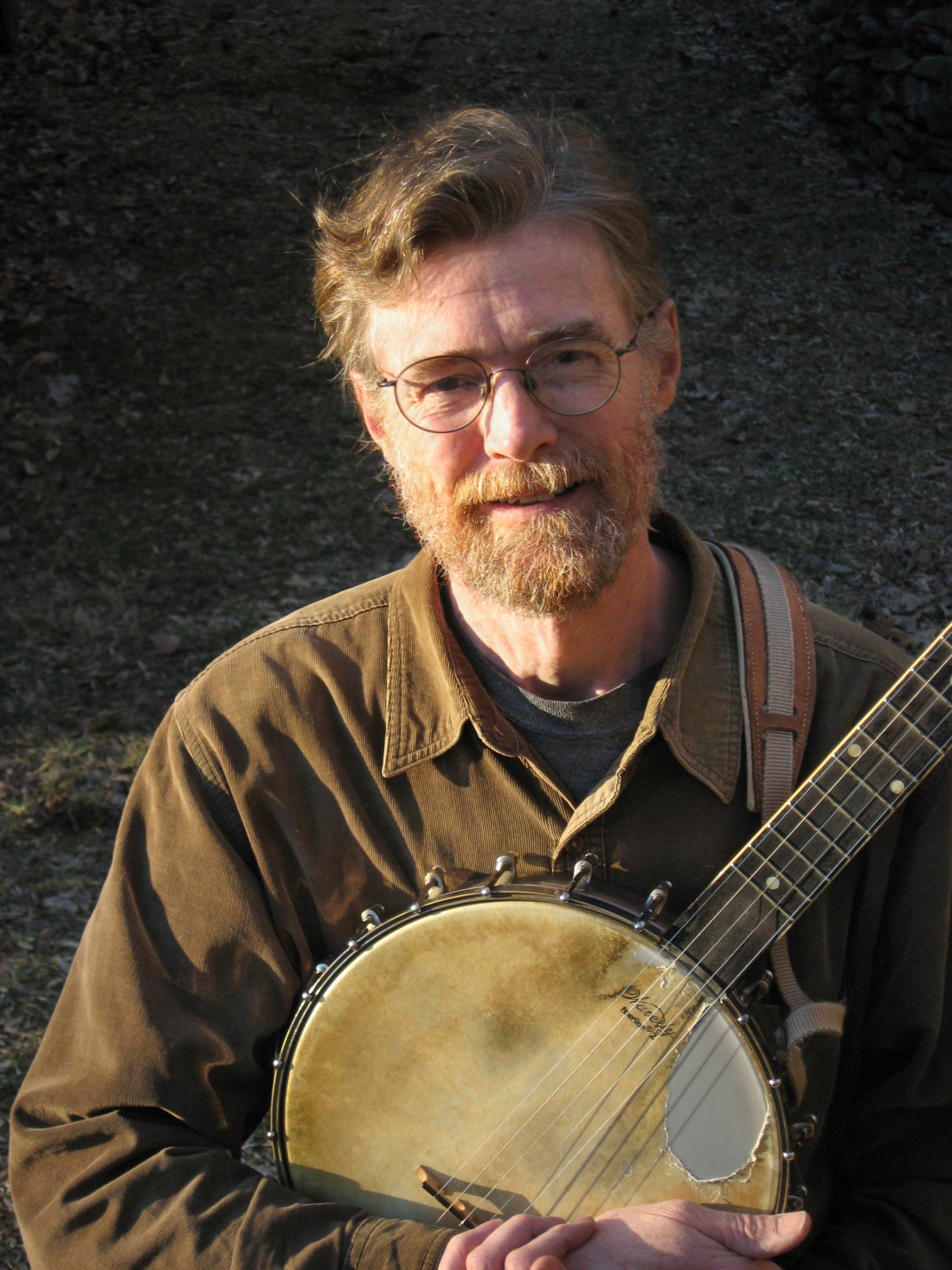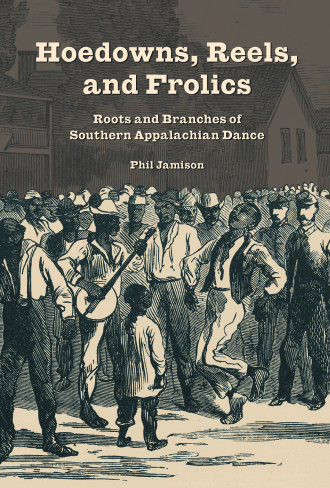Phil Jamison is one of the true revivalists who picked up traditional southern American dances, such as squares, circle mixers, and “play party games,” in the 1970s and ran with them. He has had a tremendous impact on the local dance community as founding organizer of the Old Farmer’s Ball, contra and folk dance, in Swannanoa as well as many other dances over the years. More than that, he has put a tremendous amount of energy into proselytizing for Appalachian dance nationally and internationally. Being an academic minded person who teaches, math, music, and dance he is uniquely situated to be the keeper of historical knowledge on the precious natural resource of dance traditions.
Update: Local old-time fiddle phenom, Rayna Gellert, will be playing music for dance demonstrations at the book launch at Malaprop’s.
Press release from Warren Wilson College:
Warren Wilson College Appalachian music professor Phil Jamison is set to release “Hoedowns, Reels, and Frolics: Roots and Branches of Southern Appalachian Dance,” his highly anticipated book examining the history of square dances, step dances, reels and other forms of dance from southern Appalachia. The release celebration is set for 7 p.m., Friday, July 17, at Malaprop’s Bookstore and Café in Asheville, North Carolina. The event is free and open to the public.
“I hope to dispel some of the myths that have been longstanding for the last 100 years,” said Jamison. “These dances are not just ancient Anglo-Celtic heritage that has been locked away in isolation in the mountains, but it includes multicultural and multiracial influences, and it is a continually changing tradition.”
The nationally known dance caller, old-time musician and flatfoot dancer’s 14-year project looks at traditional Appalachian dance and turns the table on, what he says, is the oft-told incomplete history. Jamison argues that the distinctive folk dances are not the unaltered jigs and reels of the early British settlers, but hybrids that developed over time, drawing from the European, African-American and Native American traditions.
“The real complexity of American history is slowly, finally, being uncovered; Phil Jamison shines a beautifully well-researched light on the birth of folk dance and music in these United States,” said Rhiannon Giddens, member of the Grammy Award–winning Carolina Chocolate Drops. “He manages to dispel several well-worn myths in the process, and has Native [American] and particularly African-American influences in their rightful place alongside the Anglo in the evolution of our indigenous folk traditions. The true history is far more interesting than the fantasy, and Jamison’s thoughtful treatise will have you re-evaluating what you thought you knew about Square Dance–this ain’t just a do-si-do in the school gym!”
Jamison explores the powerful influence of black culture showing how practices such as dance calling and specific steps combined with white European forms to create distinctly “American” dances. “Nobody would deny that square dancing is an American dance form,” said Jamison. “If you listed other types of music or dance that you would consider ‘American,’ you would include jazz, blues, bluegrass, rock and roll, tap dance, swing dance, etc. Each of these different types of music and dances that we think of as ‘American’ has black influence, so it should be no surprise that square dancing does too.”
“Hoedowns, Reels, and Frolics” includes the work of Warren Wilson students, members of the College’s Geographic Information Crew, who helped create three maps for the book. While one map identifies the Appalachian region, another shows the region’s river system, which Jamison calls “the back door to Appalachia” and credits with the transmission of new styles of dance throughout the southern mountains during the 19th century. A third and final map pinpoints the regional location of dance callers, who were recorded on 78-RPM recordings in the 1920s and 30s. As a companion to the book, Jamison maintains a website featuring the recordings of nearly 100 Southern dance callers from 1924 to 1933.
From the Shoo-fly Swing to the Virginia Reel, “Hoedowns, Reels, and Frolics,” published by University of Illinois Press and supported by a grant from the L. J. and Mary C. Skaggs Folklore Fund and Warren Wilson College, reinterprets an essential aspect of Appalachian culture. “Throughout the book,” Jamison said, “you find the continual exchange of culture back and forth between blacks and whites across racial lines and between social classes. There’s way more to the story that nobody has ever talked about.”
Alan Jabbour, founding director of the American Folklife Center at the Library of Congress, calls “Hoedowns, Reels and Frolics” a book “by which we will all measure how our view of a subject has changed.”
Editorial disclosure: Able Allen and Phil Jamison are friends and serve together on the board of the Old Farmer’s Ball.




Before you comment
The comments section is here to provide a platform for civil dialogue on the issues we face together as a local community. Xpress is committed to offering this platform for all voices, but when the tone of the discussion gets nasty or strays off topic, we believe many people choose not to participate. Xpress editors are determined to moderate comments to ensure a constructive interchange is maintained. All comments judged not to be in keeping with the spirit of civil discourse will be removed and repeat violators will be banned. See here for our terms of service. Thank you for being part of this effort to promote respectful discussion.